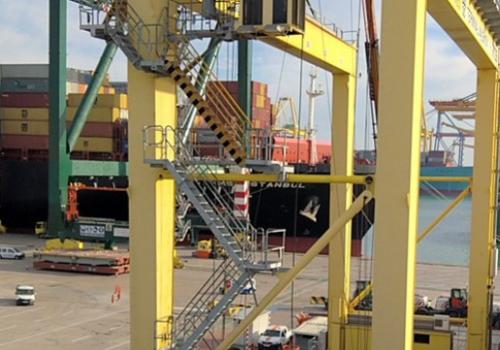Like most ports around the world, Spain’s Valenciaport reported a steep decline in total traffic for the first seven months of 2020 largely due to the impact on the coronavirus. The port, however, also highlighted that the economy is beginning to rebound reflected in increases in traffic versus the lowest levels experienced in the spring.
Between January and the end of July, Valenciaport reported nearly a nine percent decline in total volumes to 44 million tons with a slightly larger, nearly 10 percent, decline in the number of containers handed – just under 3 million – in the port. As the first waves of COVID-19 began across Spain in February, port volumes declined by nearly 10 percent with the impact rising to a nearly 20 percent decline in port volumes in May.
Valenciaport, however, highlighted that the current traffic figures confirm that the Spanish economy’s import/export trade is on the road to recovery. While volumes remained down year-over-year, the port began to see a recovery in volumes during June and experienced its third best July in the history of the port.
The volume declines were nearly cut in half between May and June, with the port reporting a 10.5 percent decline year-over-year in June and a 11.5 percent decline in July. In July 2020, Valencia port handled a total of nearly 440,000 containers, a level nearly equal to its volumes in July 2018.
Port officials pointed to stability in volumes in the agri-food and non-metallic mineral sectors during the pandemic. While the energy and food sectors remained at similar levels to 2019, the port had an 18 percent increase in volumes in the non-metallic mineral sector in the first seven months of the year.
Export levels showed the stronger rebound and especially with food products which were up nearly 20 percent and canned goods which were up seven percent. Reflecting the impact of the pandemic, vehicles and transport exports were down nearly 20 percent while construction material exports were also down more than 10 percent.
During July loaded export containers were down approximately 10 percent while loaded imports remained down 17 percent as the country recovered from its lockdowns. In transit containers were down eight percent while the volume in empty containers was down more than 13 percent year-over-year. Ro-ro traffic decreased by more than a third in July.
They also reported continued growth in activities with countries including Algeria, Canada, Italy, Saudi Arabia and the United Kingdom. The port experienced a decline in volumes to Spain’s main trading partners including the United States, China and Turkey, but the number of containers to Algeria increased by more than 16 percent in 2020.
The suspension of the cruise activity and the uncertainty generated by Covid-19 also had a significant impact on passenger traffic, which is down by more than a third to the Spanish islands in 2020.
